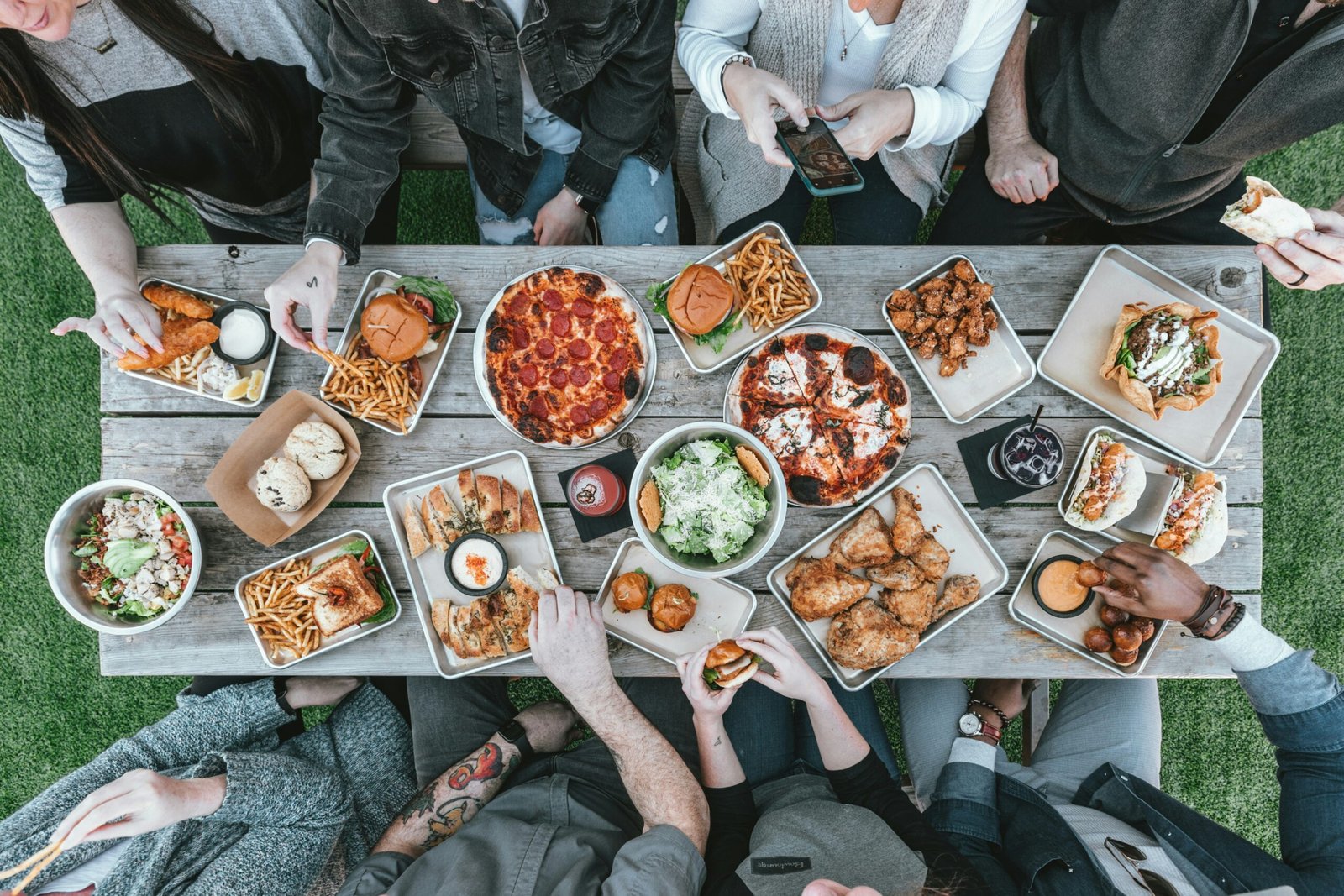
Have you ever wondered what might happen if you stopped dieting? The journey of dieting can often feel like a never-ending cycle, filled with restrictions, rules, and numbers. But what if you allowed yourself to step off this path, even for just a moment? You might have questions about the implications of such a decision—both physically and psychologically. It’s important to approach these questions with curiosity and compassion rather than fear or judgment.
Learn More About The Effects Of Stopping Diets
Understanding the Dieting Cycle
Dieting is commonly seen as a necessary pursuit for health and well-being. However, it often becomes a complex cycle comprising restriction, deprivation, and eventual overindulgence. This cycle might be familiar if you’ve attempted various diet plans over time. It’s crucial to recognize whether you’re caught in such a loop as a first step.
Why Do People Diet?
People often diet for a multitude of reasons. Some are motivated by health concerns such as managing a medical condition or aiming for better fitness, while others are influenced by societal pressures and beauty standards. The diet industry capitalizes on these motivations by promoting a plethora of programs promising miraculous results. However, it’s worth questioning whether these promises are sustainable and beneficial in the long run.
The Dieting Cycle Explained
-
Restriction Phase: This phase involves restricting calorie intake or eliminating certain food groups. While it can initially lead to weight loss, prolonged restriction can stress your body and mind.
-
Deprivation: Over time, the strict rules imposed by dieting can lead to feelings of deprivation. You’re essentially telling yourself that certain foods are off-limits, which can lead to cravings and feelings of dissatisfaction.
-
Overindulgence: Eventually, the body and mind may rebound by overindulging. This phase often results in consuming more than necessary, leading to guilt and the re-initiation of the dieting cycle.
Understanding this cycle is critical in recognizing patterns in your eating behavior and overall relationship with food.
The Psychological Effects of Dieting
Dieting is not purely a physical endeavor—it has significant psychological implications as well. How does constant dieting affect your mental health and emotional well-being?
Emotional Well-being
The pressure to stick to a diet can create stress, anxiety, and even depression. The fear of failure, coupled with the high standards you might set for yourself, can lead to a negative self-image. It’s essential to acknowledge these feelings to start healing your relationship with food.
Relationship with Food
Dieting can distort the natural relationship you have with food. Food, which should be a source of nourishment and pleasure, can transform into a symbol of guilt and control. By recognizing these distorted perceptions, you can begin to rebuild a healthier relationship with food.
Mindfulness and Intuitive Eating
Stepping away from dieting doesn’t mean neglecting your health. Practices like mindfulness and intuitive eating encourage you to listen to your body’s hunger cues and choose foods that satisfy both your physical and emotional needs. This shift from a dieting mindset to a nourishing one can foster a sense of balance and freedom.

Discover The Impact Of Quitting Diets
The Physical Effects of Ceasing to Diet
You might wonder how your body will react if you stop dieting. There’s a misconception that not dieting equates to letting go of all dietary discipline. Let’s explore what happens physiologically when you decide to embrace a non-restrictive approach to eating.
Weight Fluctuation and Set Point Theory
Initially, your weight might fluctuate as your body adjusts to a new, more stable pattern of eating. This fluctuation can feel unsettling, but it’s a temporary phase. The set point theory suggests that your body strives to maintain a natural weight range, and stepping off the dieting cycle allows it to recalibrate.
Metabolic Adjustments
Long-term dieting can slow down your metabolism as your body learns to conserve energy. By abandoning restrictions, you might notice an increase in energy levels as your metabolism readjusts. Your body, when fed adequately and consistently, begins to trust that it will receive the nutrients it needs.
Nutritional Balance and Energy
Without the limitations imposed by diets, you may find yourself enjoying a wider variety of foods. This inclusivity helps ensure you receive all necessary nutrients, and a balanced diet can improve energy levels, cognitive function, and overall health.
Embracing a Health-Focused Approach
Letting go of dieting doesn’t mean disregarding your health. Instead, shifting the focus from weight loss to overall well-being can be transformative.
Redefinition of Health Goals
Rather than centering health goals solely on weight, you can focus on metrics such as cardiovascular fitness, energy levels, mental health, and nutritional richness. This more comprehensive approach encourages holistic well-being.
The Role of Movement
Exercise is often viewed as a tool for weight management. However, detaching exercise from dieting reveals its true benefits. Physical activity enhances mood, improves cardiovascular health, and strengthens muscles and bones. Discovering forms of movement you enjoy can foster a lifelong love of physical activity, beyond the constraints of dieting.
Social and Emotional Benefits
Rediscovering food without the lens of dieting can enrich your social life and emotional health. Shared meals become less about counting calories and more about connection. Celebrations around food with family and friends contribute positively to your emotional landscape.

Overcoming Fear of Weight Gain
The fear of weight gain is a significant barrier when considering stopping dieting. Understanding and addressing these fears is a vital part of your journey.
Challenging Societal Norms
It’s vital to examine societal standards and how they contribute to your fear. Society often equates thinness with worth, a notion that requires active challenging. Embracing body diversity and rejecting diet culture empowers you to live authentically and healthily.
Confidence and Self-Compassion
Building confidence in your body’s natural ability to regulate itself may take time. Practicing self-compassion and patience is key in this journey. Self-love, irrespective of size, fosters a positive self-image and enhances mental health.
Practical Steps to Transitioning
Transitioning from dieting to a more intuitive approach can feel daunting. Here’s how you can make the process manageable and fulfilling.
Gradual Transition
Abrupt changes can be overwhelming. Gradually easing into practices like mindful eating or intuitive eating can help you acclimate without feeling deprived or anxious.
Seeking Support
Connecting with healthcare professionals such as dietitians, therapists, or support groups can provide guidance and emotional support. These resources offer practical advice and reassurance during this transition.
Setting Realistic Expectations
Understanding that the journey to intuitive eating and body acceptance is ongoing and non-linear can help set realistic expectations. Celebrating small victories and progress is essential in maintaining motivation and patience.

Conclusion
Choosing to stop dieting doesn’t mean neglecting your health—it can be an act of reclaiming your relationship with food and your body. By comprehending the dieting cycle, you can equip yourself with the knowledge to make empowered choices. Stepping away from dieting offers the potential for profound physical, psychological, and emotional benefits. Embracing a life free from the constraints of dieting is a path to self-discovery, acceptance, and holistic well-being. Let this journey be guided by curiosity and compassion, allowing you to explore the full spectrum of health and happiness.